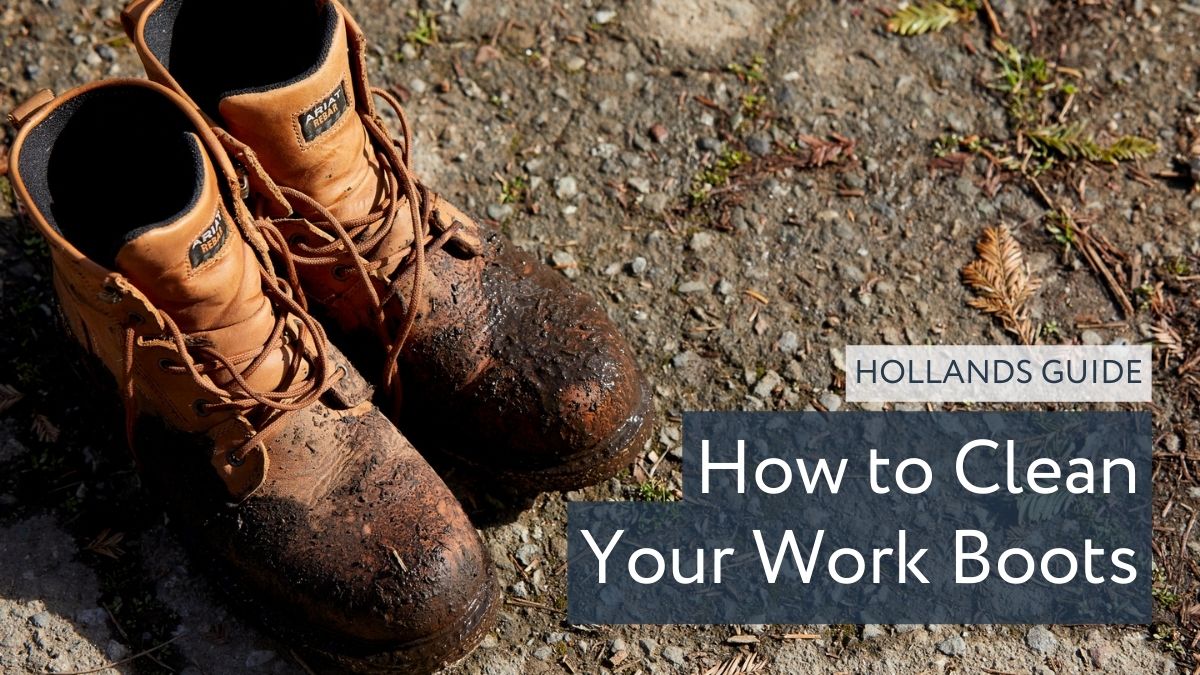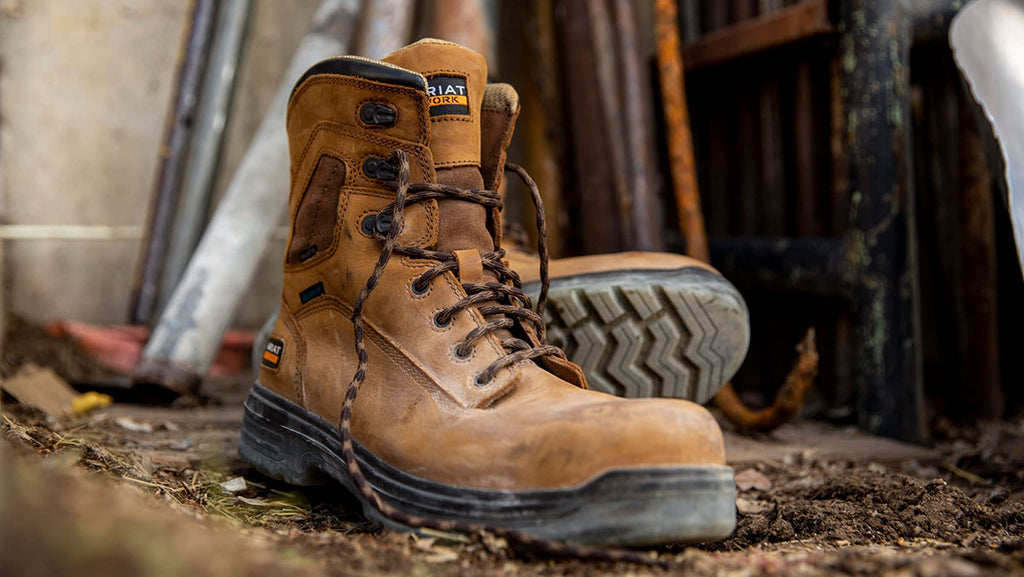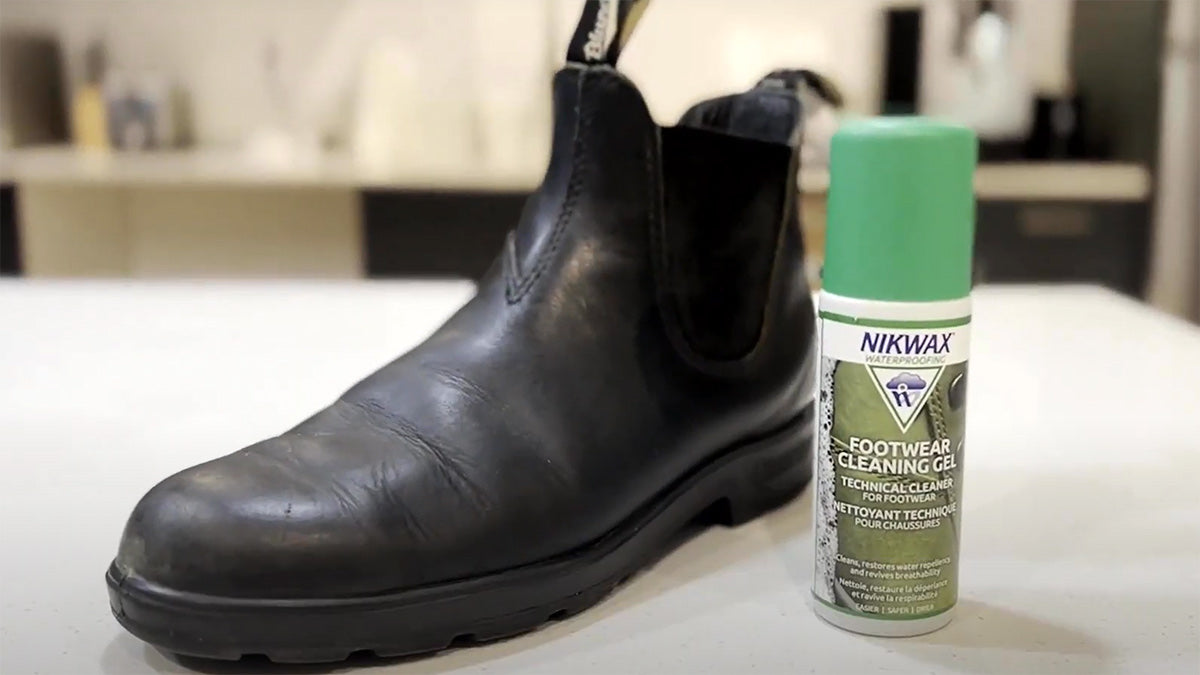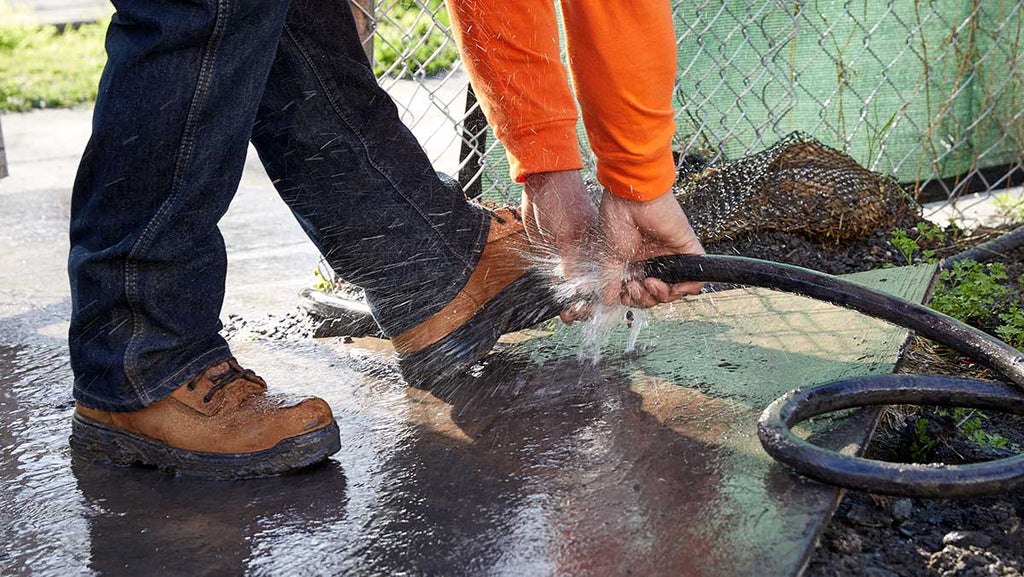
Our Care Guide for Cleaning Your Work Boots
Farmers, labourers, gardeners, and anyone who relies on their sturdy footwear for work know just how much wear and tear your boots can go through.
When you've put in a hard day's graft, your boots can be put through the wringer, and that's why it's important to know how to take care of them. Proper care isn't just about making sure they look good, it's about your safety, protection, and maximising the potential of your investment.
In this blog post, we're going to talk you through the ins and outs of looking after your work boots, showing you quick and simple techniques for cleaning, maintenance, and long-term care.

Choosing the Right Work Boots
Before we discuss the 'how', let's make sure you've got the right "what".
If you've got the wrong boots for the job, you're already starting ten steps behind in the process. It will always be harder to keep them clean and cared for, as they're not being used for their intended purpose.
To help make sure you have chosen the best protective footwear for your work, here are a few pointers to take into consideration:
- Think about your workplace and any hazards you often encounter. Identifying the potential risks will help you pick out boots with the necessary safety features. For example, you might need steel toe cap boots or waterproof boots for an added layer of protection.
- Will you be working outdoors in particularly cold or hot temperatures? If so, you will need to pay particular attention to the material and features. Consider insulation or breathable linings as appropriate.
- Ill-fitting boots don't do anyone any favours. Not only are they uncomfortable, but they can also be dangerous. Plus, they can affect the shape and, subsequently, function of the footwear. Make sure you take accurate measurements of your feet and try on different styles to suit.
It's always advisable to read the features list of any product to see if it matches what you need. You may also want to consult Health and Safety Executive for further guidance on any required safety ratings for your footwear.

Boot Maintenance Routine
Getting into good habits with regular cleaning and proper storage is the best way to keep your boots looking and feeling like new.
It doesn't have to take a long time or be another pesky chore to add to your list. We've put together some simple steps to follow that will hopefully help.
Cleaning
By regularly maintaining your footwear, the overall process becomes less of a big job and only occasionally will you need to do a thorough, deep clean.
You might want to give them a quick wipe down at the end of each workday, and then, at the end of your working week, treat them to a proper clean.
To effectively clean your boots, you should:
- If applicable, remove any laces and put them to the side.
- Gently knock the boots together to loosen and shake off any loose dirt, mud, or debris. Grab an old toothbrush or brush and scrub at any buildup that hasn't already dropped off.
- Mix a small amount of mild soap, such as washing up liquid or laundry detergent, with clean lukewarm water. Alternatively, you may wish to use a specialised footwear cleaner, such as the Nikwax Footwear Cleaning Gel.
- Using a damp cloth or sponge dipped into the soapy water, softly scrub at the boots to remove any remaining dirt or stains. Make sure you don't leave any soapy residue on the boots - wipe off with a clean cloth if necessary.
Important things to note are: be gentle, don't use any harsh chemicals, and avoid the temptation to just put them in the washing machine!
Drying
Once your work boots are nice and clean, it's now time to leave them to dry.
Place the shoes in a well-ventilated area and allow them to naturally air dry. It can be tempting to use a hairdryer, radiator, or put them by the fireplace, but this can cause the upper material to crack and shrink, causing damage to the boots.
This is why it's suggested to clean them at the end of your week, so it gives them a chance to properly dry before you need to wear them again.
Conditioning
Certain materials, specifically leather, need regular conditioning to keep them supple.
Once the boots are clean and dry, treat them to some TLC with some leather conditioners and creams.
Apply sparingly using a soft cloth, and allow to fully absorb and dry again before you wear them.
Storing
Improper storage can cause a good pair of work boots to go bad.
To store your footwear correctly, here are a few tips and tricks:
- Store in a cool, dry place away from direct sunlight and high heat. Try not to expose them to extreme temperatures as this can affect the outer material. This includes wet environments, airing cupboards, and humid places.
- To support the structure and maintain the shape of the boots, invest in some boot trees or simply stuff with old newspaper. This is particularly important if you won't be wearing the boots for prolonged periods of time.
A little bit of time and effort in ensuring correct cleaning and storage can bring you substantial returns. Check out our full range of footwear care and cleaning products to stock up on essentials.

Long-Term Care Tips
If you have a great pair of comfortable work boots, you'll want them to last. We've talked about how to clean your boots and how to store them, and now we'll finish up with some key points about ongoing proper maintenance.
- A regular inspection of your shoes can work wonders. Look for visible signs of damage or deterioration, such as worn-out soles or frayed laces. If you can spot the problem early, you may be able to fix it whilst it's still minor. Take the boots to a professional cobbler for advice if necessary.
- Over time, insoles and laces tend to succumb to wear and tear, meaning that they no longer provide the support and comfort required. Replacing them is a good way of extending the life of your work boots so you can continue wearing them.
- If your boots regularly come into contact with the elements, consider using waterproofing sprays or treatments to help their protective properties. This will help prolong the life of the shoes by increasing water resistance, as well as preventing water damage and staining.
- They may be your favourite boots, but when they show signs of excessive wear or weakened structural integrity, it may be time to say goodbye. Your safety at work is the number one priority, and you don't want to compromise this by failing to replace boots past their best. Your footwear was designed to bring you certain features, such as slip resistance soles or midsole protection, and so, if these start to fall apart, they are no longer fit for purpose and need to be replaced.
Take pride in the aesthetics and performance of your boots, and they will take care of you in return.
Summary
Get the best out of your boots and make sure to clean, dry, condition, store, and maintain them as outlined here in this handy guide. A little can go a long way, and your feet will thank you when you keep them protected and comfy in well-cared for footwear.
If you're looking for a new pair of work boots, make sure you check out our fantastic collection or get in touch with our team for personalised help.
Mark Holland has a keen eye for all things men's country clothing. Living amidst the fields and farms, he understands the practical aspects of rural living and the timeless style that accompanies it. His advice reflects a genuine appreciation for the comfort and connection that come with country wear. If you're looking for down-to-earth recommendations, then trust Mark to guide you through kitting out your wardrobe with firm favourites and classic designs.









